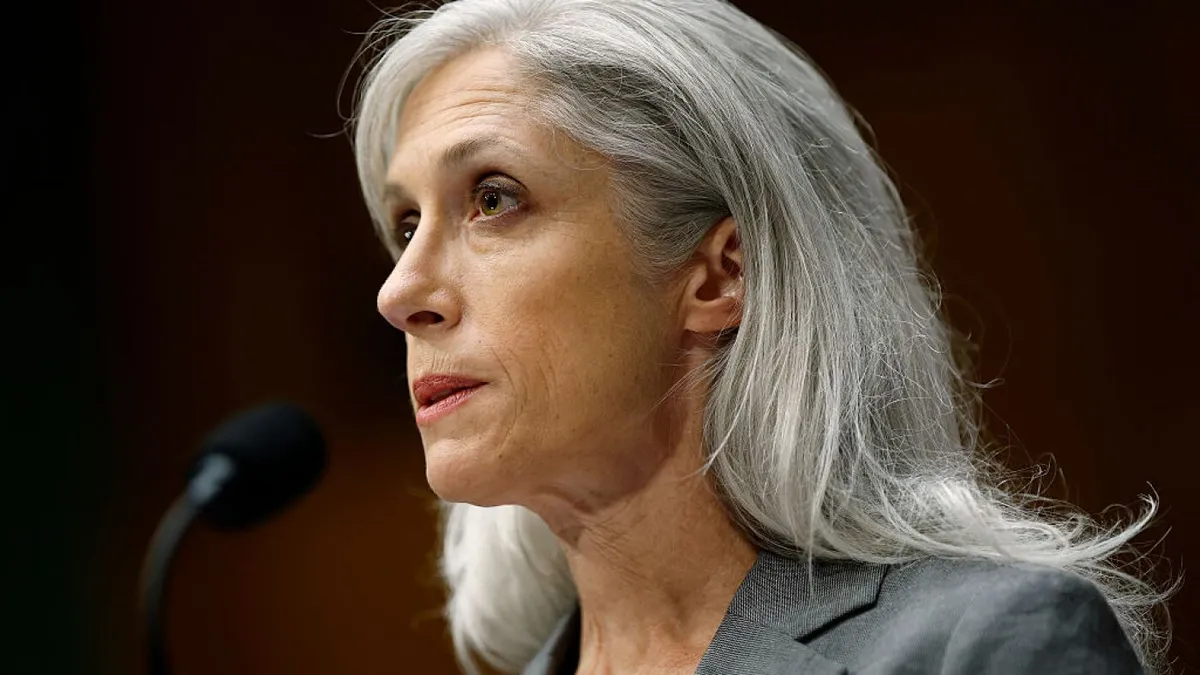
In a highly anticipated public appearance, Susan Monarez, the former head of the Centers for Disease Control and Prevention (CDC), passionately defended her brief tenure at the beleaguered public health agency. During her testimony before the Senate Committee on Health, Education, Labor and Pensions, Monarez revealed that she was ousted last month due to her refusal to comply with demands from Health Secretary Robert F. Kennedy Jr.. These demands included pre-approving vaccine recommendations for the public and terminating career scientists.
Monarez emphasized her commitment to science, stating, “Even under pressure, I could not replace evidence with ideology.” She argued that vaccine policy should be driven by credible science and factual evidence, not political agendas. This assertion directly countered claims made by Secretary Kennedy, who had previously written in a Wall Street Journal op-ed and reiterated during a congressional hearing that Monarez was dismissed due to her alleged untrustworthiness.
In her testimony, Monarez recounted a series of events that culminated in her dismissal, highlighting her conflict with Kennedy over proposed alterations to a significant CDC committee that issues vaccine recommendations. She detailed a tense meeting with him in late August, where he insisted that the childhood vaccine schedule would change starting in September, urging her to get on board with new directives.
Senator Bill Cassidy, a Republican who chairs the committee and a medical doctor, initiated the hearing by acknowledging Monarez's historic role as the first CDC director confirmed by the Senate, receiving unanimous support from his party. Cassidy remarked, “What happened? Did we fail? Was there something we should have done differently?” He underscored the necessity for the American people to receive all the facts, rather than a narrative shaped to fit a specific agenda.
Also providing testimony was Dr. Deb Houry, the former chief medical officer at the CDC, who resigned alongside several other top officials in protest of the agency's recent changes. This hearing comes just before the next meeting of the vaccine advisory committee, scheduled for Thursday morning in Atlanta. Notably, Kennedy had previously dismissed the entire 17-member Advisory Panel on Immunization Practices in June, subsequently appointing several new members, many of whom have been critical of vaccines.
Following the tragic shooting on August 8 at the CDC headquarters in Atlanta, Monarez stated that Kennedy directed her to return to Washington D.C., which would have forced her to miss the memorial service for the officer who lost his life in the incident. Monarez expressed her unwillingness to skip this important event. During a critical meeting on August 25, Kennedy demanded that she pre-approve the vaccine advisory panel’s forthcoming recommendations, threatening her resignation if she was not agreeable. “He just wanted blanket approval,” she testified, revealing the pressure she faced from the Secretary. She noted that Kennedy had already discussed her removal with the White House on multiple occasions.
Monarez's testimony sheds light on the internal conflicts within the CDC during a pivotal time for public health policy, particularly regarding vaccine recommendations and scientific integrity.